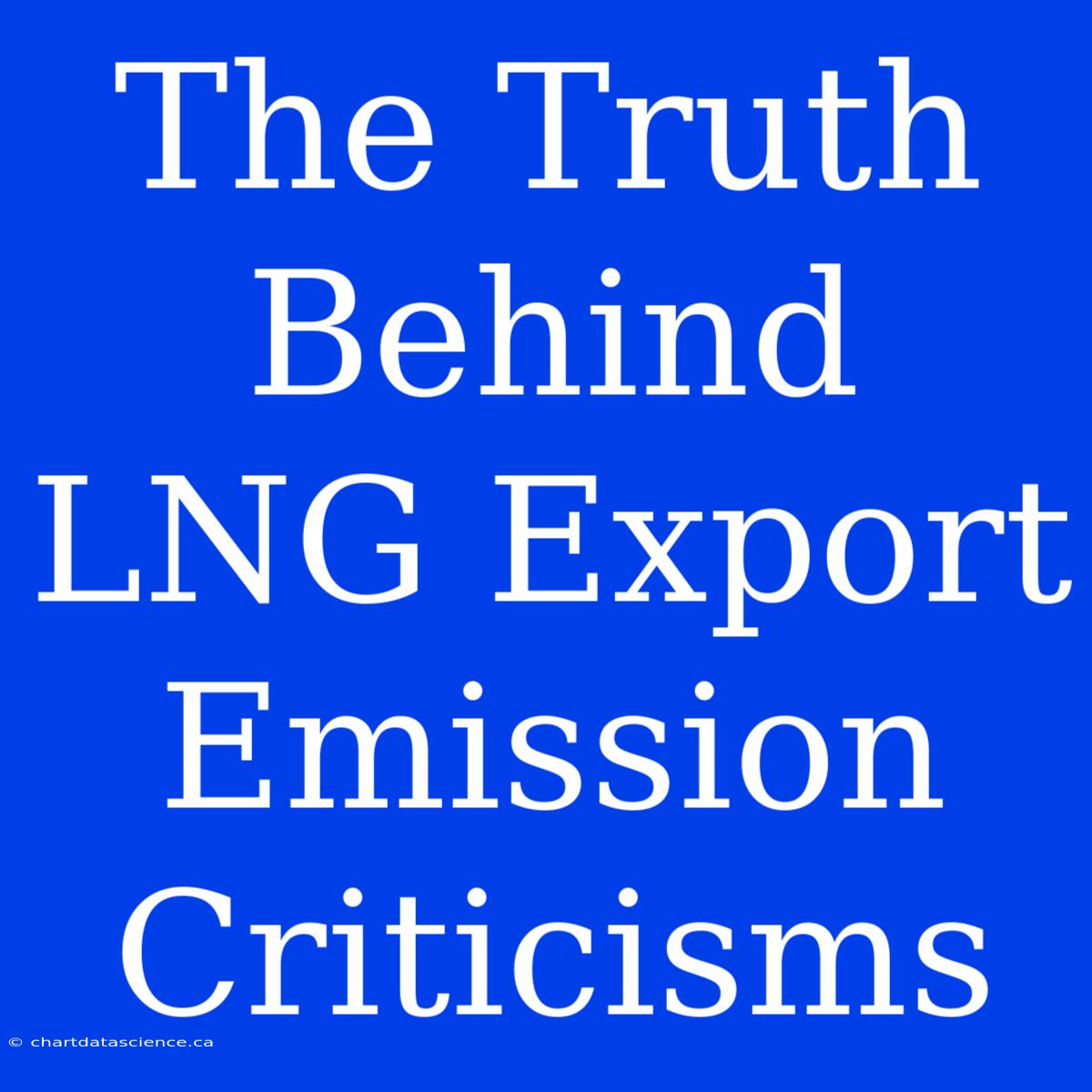The Truth Behind LNG Export Emission Criticisms: A Closer Look
The push for cleaner energy has led to a surge in interest in liquefied natural gas (LNG) as a "bridge fuel" toward a greener future. But the transition to LNG isn't without its critics, who point to the emissions associated with its production and export. So, what's the real story behind these criticisms? Let's dive into the facts.
Understanding the Criticisms:
The most common criticism surrounding LNG exports is that they contribute to greenhouse gas emissions, particularly methane leaks. This is true – methane, a powerful greenhouse gas, can be released during various stages of the LNG lifecycle, from production to transport.
However, the issue is more nuanced than a simple "LNG is bad" narrative. It's crucial to acknowledge that:
- LNG is significantly cleaner than coal: When burned, LNG produces roughly half the carbon dioxide emissions of coal, making it a viable alternative for reducing emissions from existing power plants.
- Methane leak rates are declining: While methane leakage remains a concern, advancements in technology and improved infrastructure have led to a significant reduction in leak rates across the LNG value chain.
- International regulations are evolving: To address concerns, international organizations like the International Energy Agency (IEA) are working on developing stricter standards and regulations for methane emissions in the LNG sector.
Examining the Evidence:
Studies and reports have shown that the overall emissions associated with LNG exports are relatively low compared to other fossil fuels. The IEA estimates that global methane leak rates for LNG are around 0.2%, significantly lower than previous estimates.
Additionally, many experts believe that the benefits of switching to LNG outweigh the environmental costs, especially when considering its role in transitioning away from coal.
Finding a Balance:
While LNG offers a cleaner alternative to coal, the industry needs to continue its efforts to minimize methane emissions. This involves:
- Investing in leak detection and repair technologies: Advanced technologies can help identify and address leaks in pipelines, processing facilities, and transport vessels.
- Developing new, cleaner production techniques: Research and development into alternative production methods can help minimize methane emissions and reduce the overall environmental impact of LNG.
- Promoting transparency and accountability: Open data and reporting on methane emissions throughout the LNG supply chain can encourage industry-wide improvements.
Moving Forward:
The debate surrounding LNG export emissions is complex and requires careful consideration of all factors involved. While LNG's role in a cleaner energy future is undeniable, continued efforts to reduce methane emissions and enhance transparency are crucial for ensuring a truly sustainable transition.
Remember, "LNG is not a magic bullet," but it can be a powerful tool in the fight against climate change. By embracing innovation, collaboration, and responsible practices, the LNG sector can contribute to a cleaner and more sustainable energy future.

